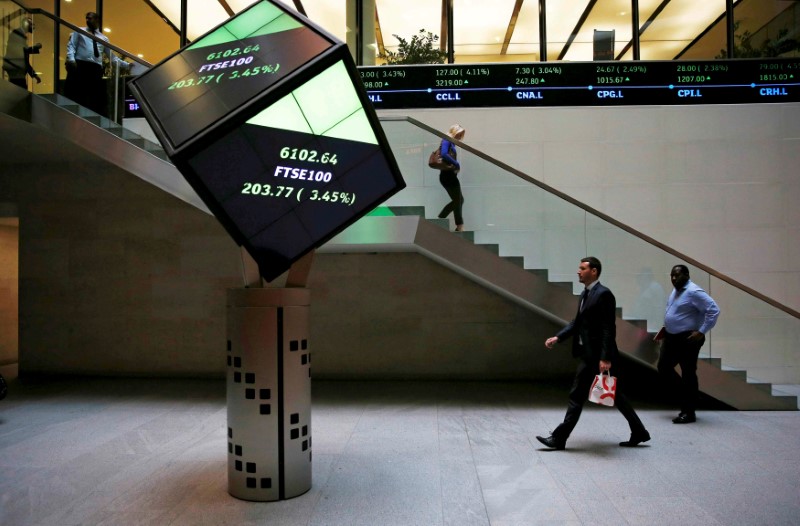By Kit Rees and Danilo Masoni
LONDON (Reuters) - European shares slid in thin trade on Friday as shares in energy firms and banks dropped, ending a lackluster week relatively little changed.
The pan-European STOXX 600 (STOXX) index closed 0.2 percent lower as did the euro zone blue chips (STOXX50E).
Banks (SX7P) were the biggest drag, falling 0.6 percent and hitting a one-week low earlier in the session.
Traders cited worries over the political situation in Italy and concerns surrounding ailing regional banks Popolare di Vicenza and Veneto Banca, even though the county's economy minister sought to reassure investors on Thursday that they will not be hit in any rescue of the two banks.
In the sector, Italian banks Intesa Sanpaolo (MI:ISP), Mediobanca (MI:MDBI) and UniCredit (MI:CRDI) reduced losses after earlier falls, while Germany's Deutsche Bank (DE:DBKGn), Bank of Ireland (I:BKIR) and Britain's Lloyds (L:LLOY) were among the biggest fallers.
Exane analysts also flagged "uninspiring newsflow" from global regulators of the Basel Committee. A top official said on Thursday they would soon finalize rules to ensure banks hold enough capital to withstand rocky markets without taxpayer aid.
Oil stocks (SXEP) were the biggest sectoral fallers, down more than 1 percent as the oil price tumbled following OPEC's decision to extend a production cut to March 2018, which disappointed investors. [O/R]
"In hindsight, we can now clearly say that there must have been a substantial amount of anticipation in the market for not only an extension of cuts, but also for deeper cuts," Bjarne Schieldrop, chief commodities analyst at SEB, said in a note.
Heavyweights Royal Dutch Shell (L:RDSa) and Total (PA:TOTF) both declined around 0.6 percent.
A further slump in Petrofac (L:PFC) took losses in the British oilfield services firm close to 38 percent over the past two sessions after several brokers more than halved their price targets on the stock.
The company lost one third of its market value in the previous session after it suspended its chief operating office amid a fraud investigation.
More broadly, analysts pointed to recent euro strength as a drag for European equities.
"Those markets have run quite far and the fact that the euro has been strong ... particularly against the dollar, maybe we are getting to the stage where that's slightly putting the brakes on that advance," Ian Williams, economist & strategist at Peel Hunt, said.

Britain's FTSE 100 (FTSE) index was a bright spot, however, with the index closing at a record level and posting its fifth week of straight gains as sterling weakened more than 1 percent.